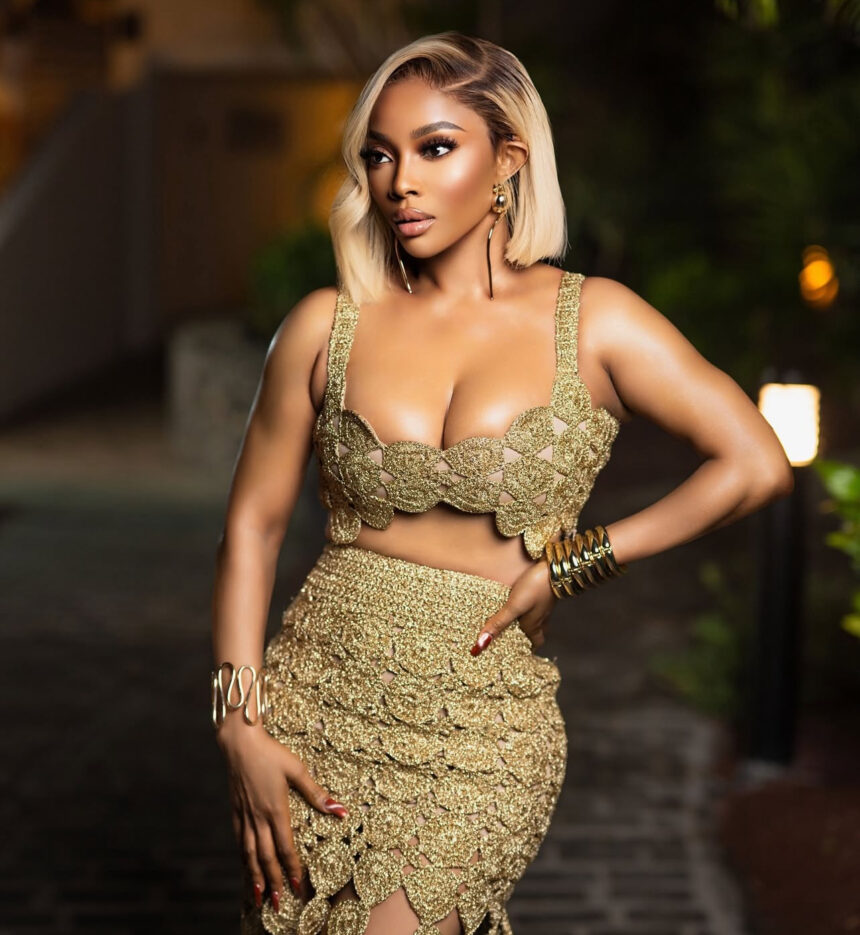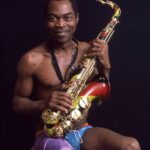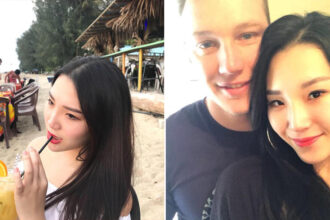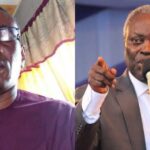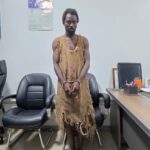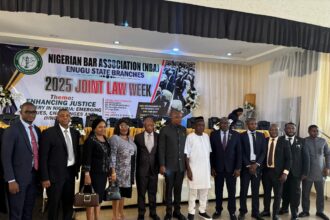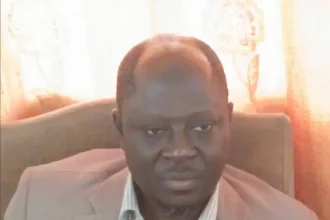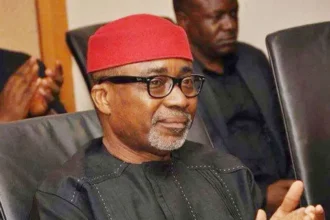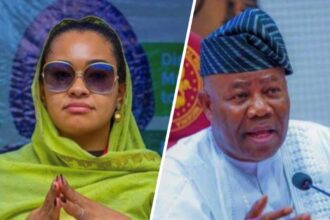A decade ago, the rhythm of celebrity culture in Nigeria was simple. Actors acted, musicians sang, influencers posted glossy content, and TV personalities anchored shows. Today, a curious shift has taken place. More and more Nigerian celebrities who once drew audiences through films, songs, or scripted appearances are now finding their loudest voices through podcasts, YouTube talk shows, and panels. The new hustle isn’t a new album or movie role, it’s sitting in front of a microphone and saying something that sounds wise, funny, or relatable.
Take Ayo Adesanya. The veteran Nollywood actress, with decades of films under her belt, recently launched a brand-new podcast called Real Life With Aunty Ayo. Her first guest was fellow industry legend Bimbo Akintola, and just last week her second guest was actor Femi Branch. In the show, she lets colleagues open up about real struggles and personal journeys, majorly topics that rarely surface on film sets. Adesanya is not alone. From Biola Bayo to Taymesan, from Toke Makinwa to Etim and Toyosi Effiong, a wave of celebrities have pivoted towards talk as their primary form of cultural production.
Why is this happening? Why are stars who once defined themselves by their art now investing so much in microphones, panels, and long conversations?
The Rise of the Talk Economy
For years, relevance in Nigerian entertainment was measured by film appearances, hit singles, or endorsement deals. But things have changed. With the explosion of podcast culture worldwide and Nigeria’s young, tech-savvy population consuming more YouTube and Spotify than ever, the barrier to entry is low, and the rewards are potentially high.
Producing a podcast episode or YouTube sit-down show is cheaper and faster than making an album or starring in a film. There’s no need for months of rehearsals or studio time. Celebrities can remain visible and topical by recording conversations on trending issues or inviting peers to share their stories. This immediacy makes talk shows a powerful survival tool in a crowded entertainment space.
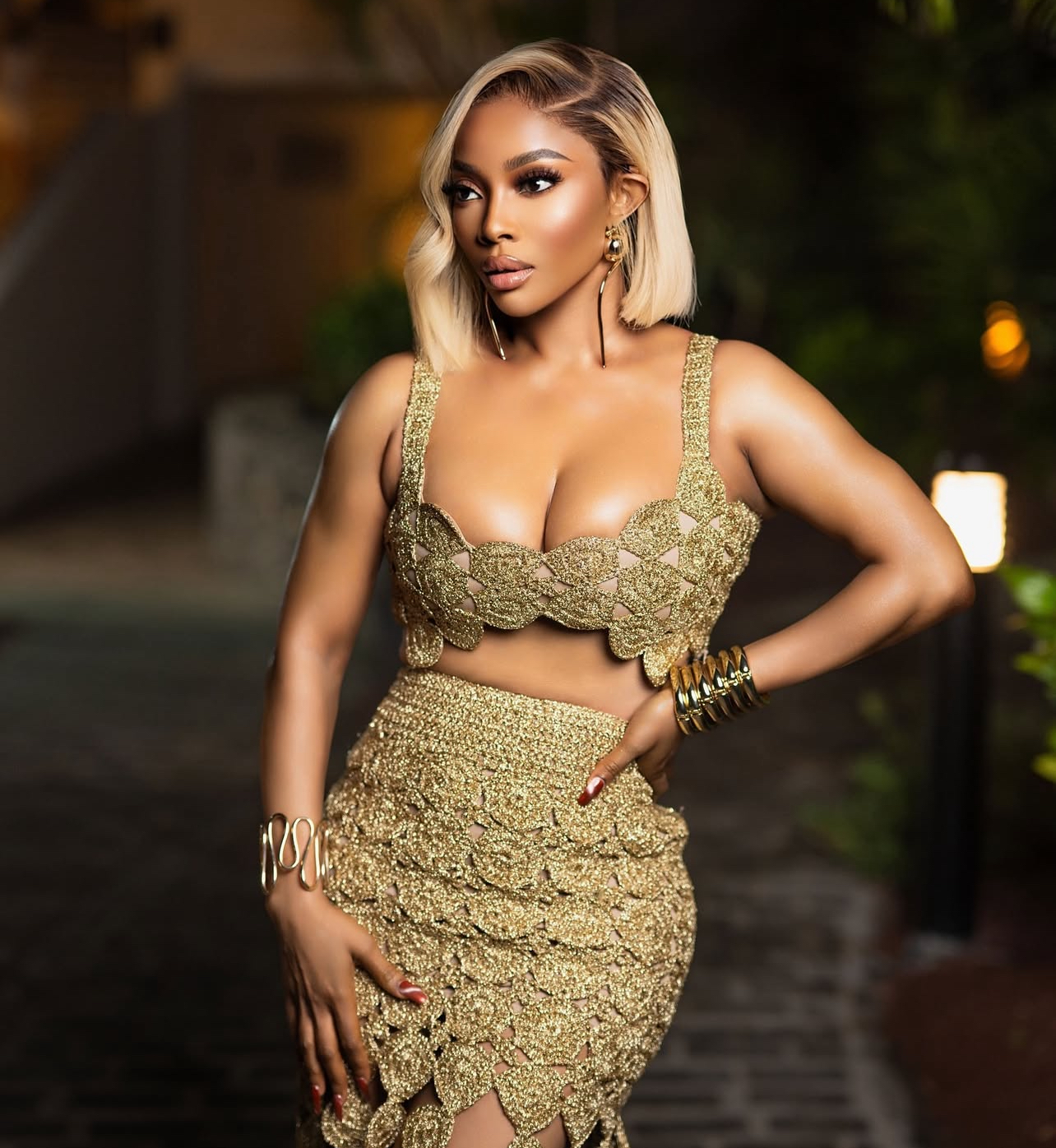
Toke Makinwa was one of the first to catch onto this. After years of hosting on radio and TV, she launched Toke Moments, a YouTube podcast where she discusses relationships, social issues, and the realities of modern Nigerian life. The show has built a consistent audience, proving that candid conversation, can be as magnetic as scripted drama.
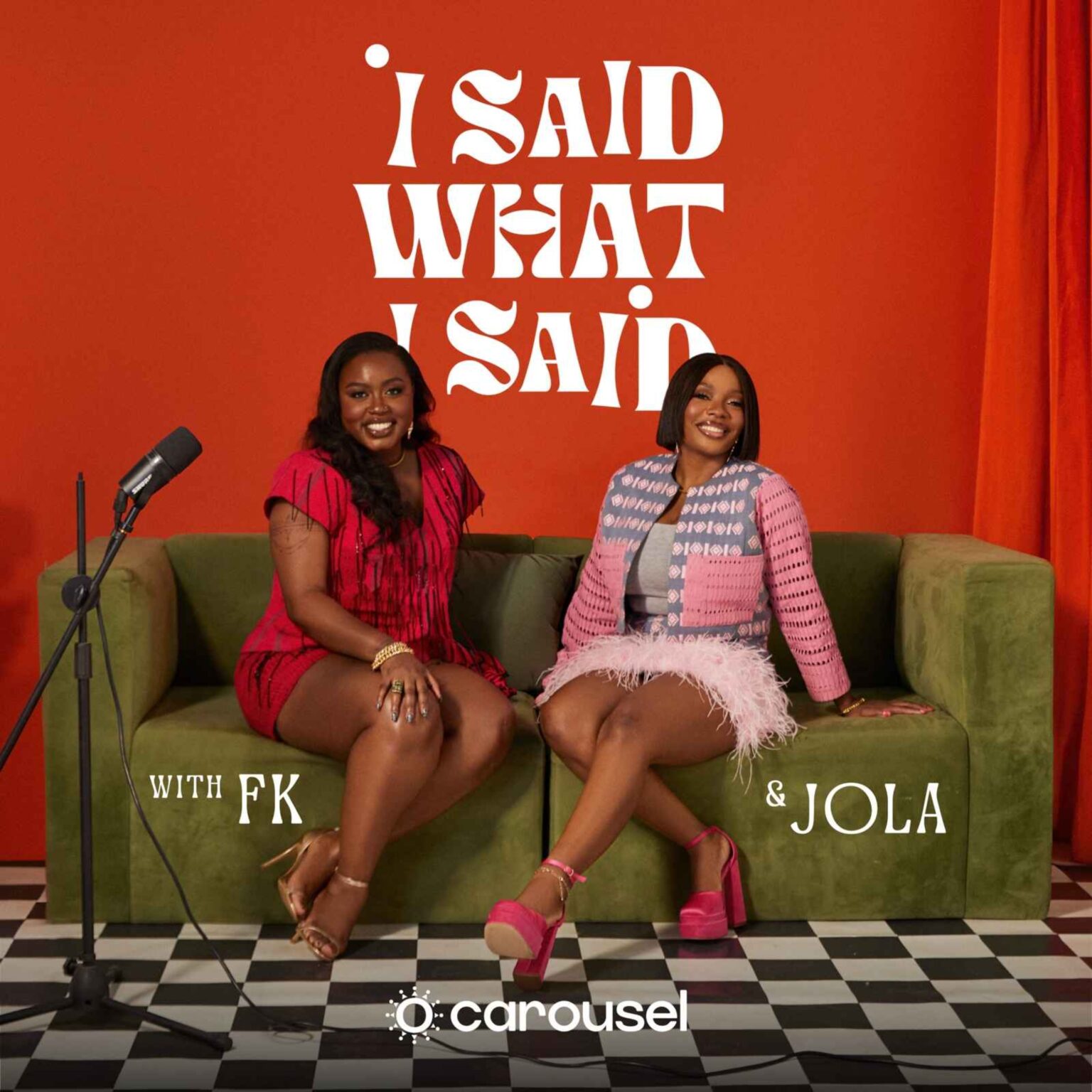
Similarly, Jola Ayeye and FK Abudu, through their podcast I Said What I Said (ISWIS), have turned cultural banter into one of Nigeria’s biggest entertainment exports. Their witty, sometimes controversial takes on society, relationships, and Nigerian life have drawn live audiences from Lagos to London. The podcast is not just a platform; it’s a touring product, with tickets sold in cities abroad. What began as “just talk” is now a revenue-generating, brand-building enterprise.
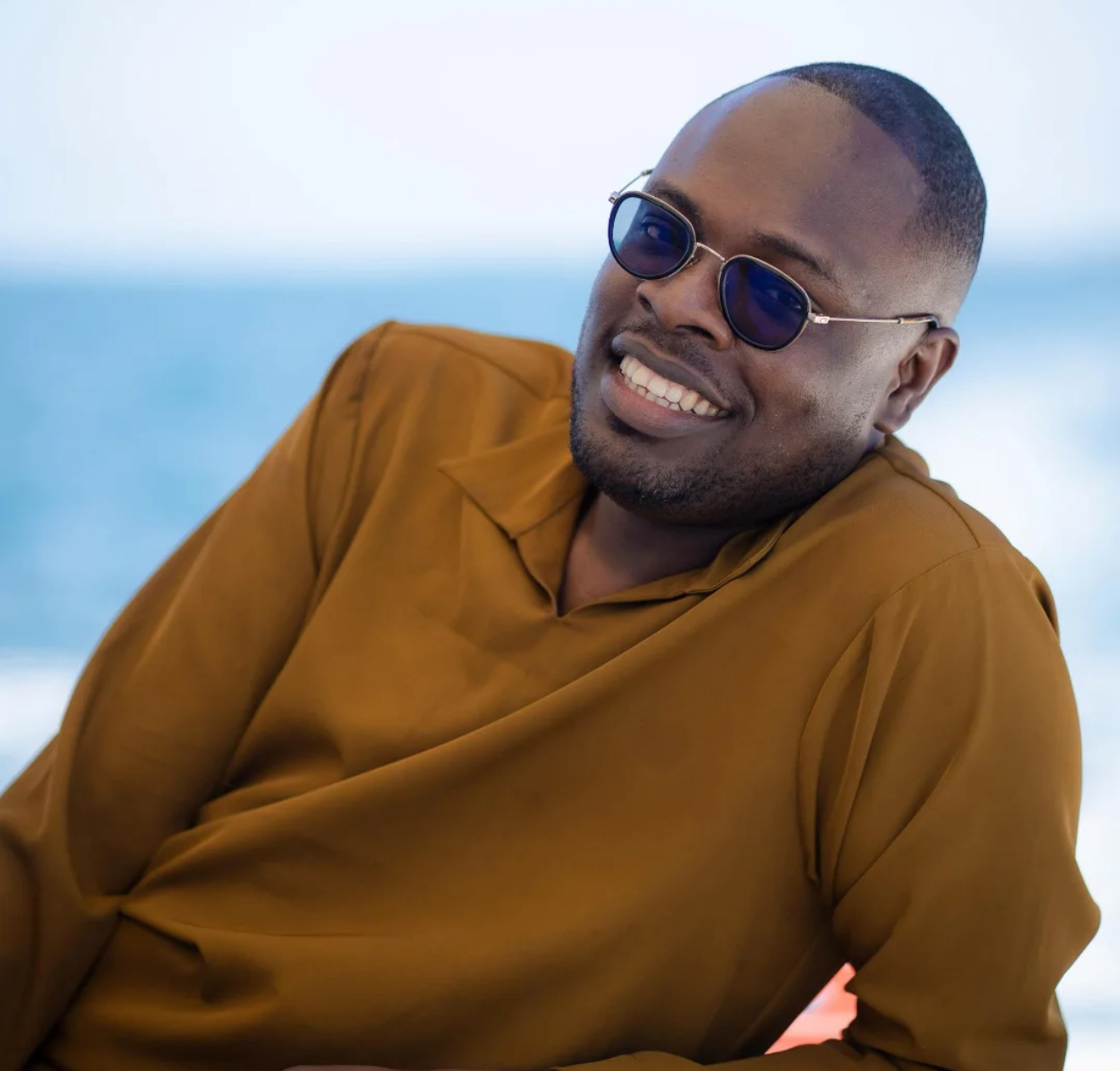
Meanwhile, Chude Jideonwo’s #WithChude has become a hub for vulnerable long-form interviews. Guests, ranging from Nollywood stars to musicians sit down for conversations that often go viral because of their raw honesty. Chude’s background is in media and public speaking, not film or music, but his dominance today comes from conversations that frame him as both interviewer and cultural custodian.
The Performance of Wisdom
For many celebrities, hosting a podcast or talk show is not only about staying visible; it’s also about reinventing themselves as bearers of wisdom. Conversation provides a stage for a different kind of performance, not acting or singing, but dispensing life lessons, advice, and reflections.
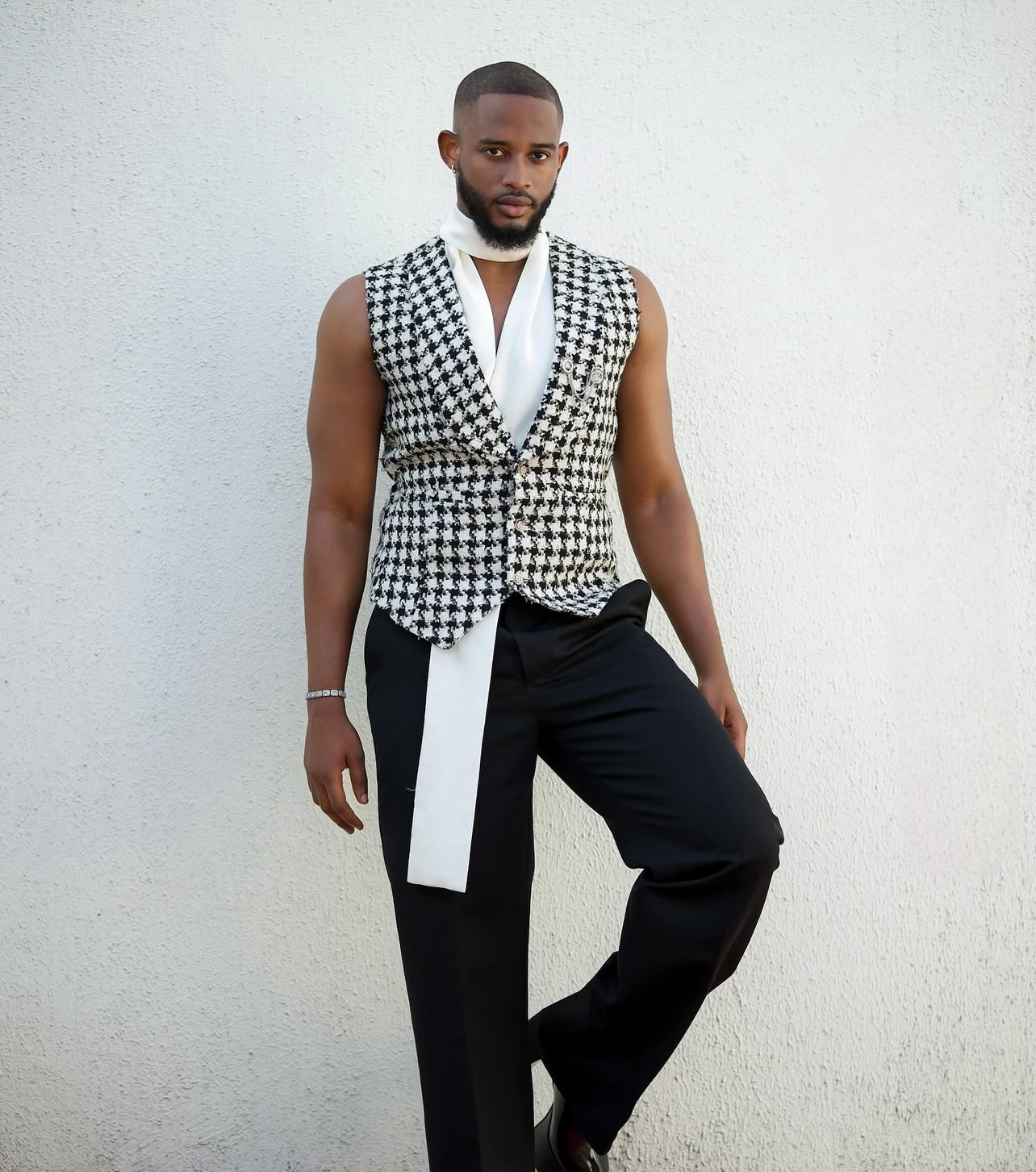
Taymesan (Temisan Emmanuel) illustrates this perfectly. Originally known for skits and presenting, his podcast Tea With Tay has become a cultural staple. Guests range from Nollywood icons to rising stars, and the conversations often balance humour with deep vulnerability. Through it, Taymesan has carved a space as a thoughtful, relatable host. His reputation is built less on his acting and more on his ability to extract wisdom from conversations.
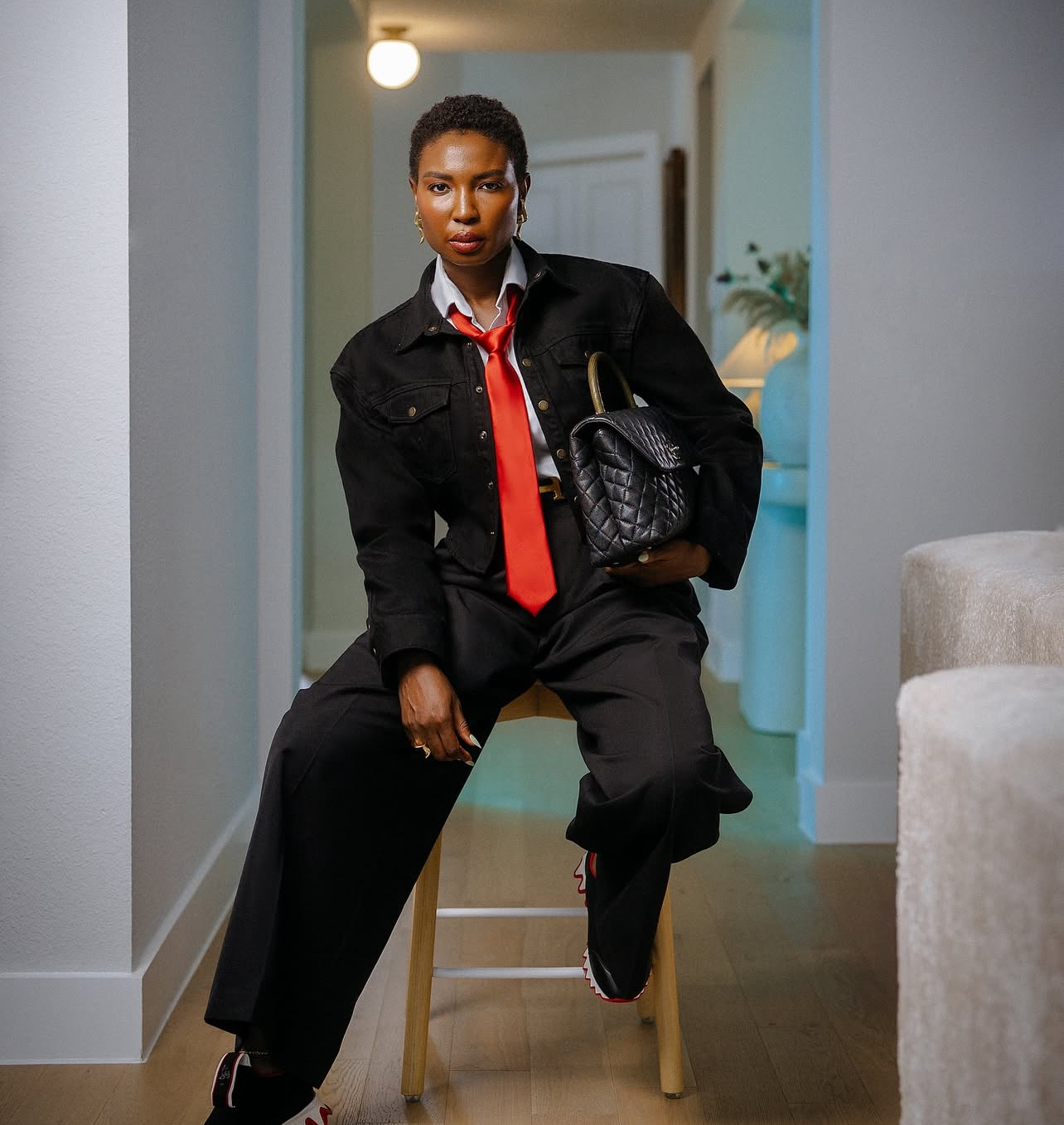
Ifedayo Agoro, the creator of Diary of a Naija Girl, also demonstrates this pivot. Her Dear Ife series takes the confessional tone of her blog and brings it to life with anonymous letters, interviews, and open discussions about relationships and Nigerian society. Guests like Kunle Remi, Shaffy Bello, and Falz lend star power, but it’s Ife’s role as a listener and “wise voice” that anchors the show. Her audience doesn’t tune in for scripted entertainment; they come for perspective, empathy, and advice.
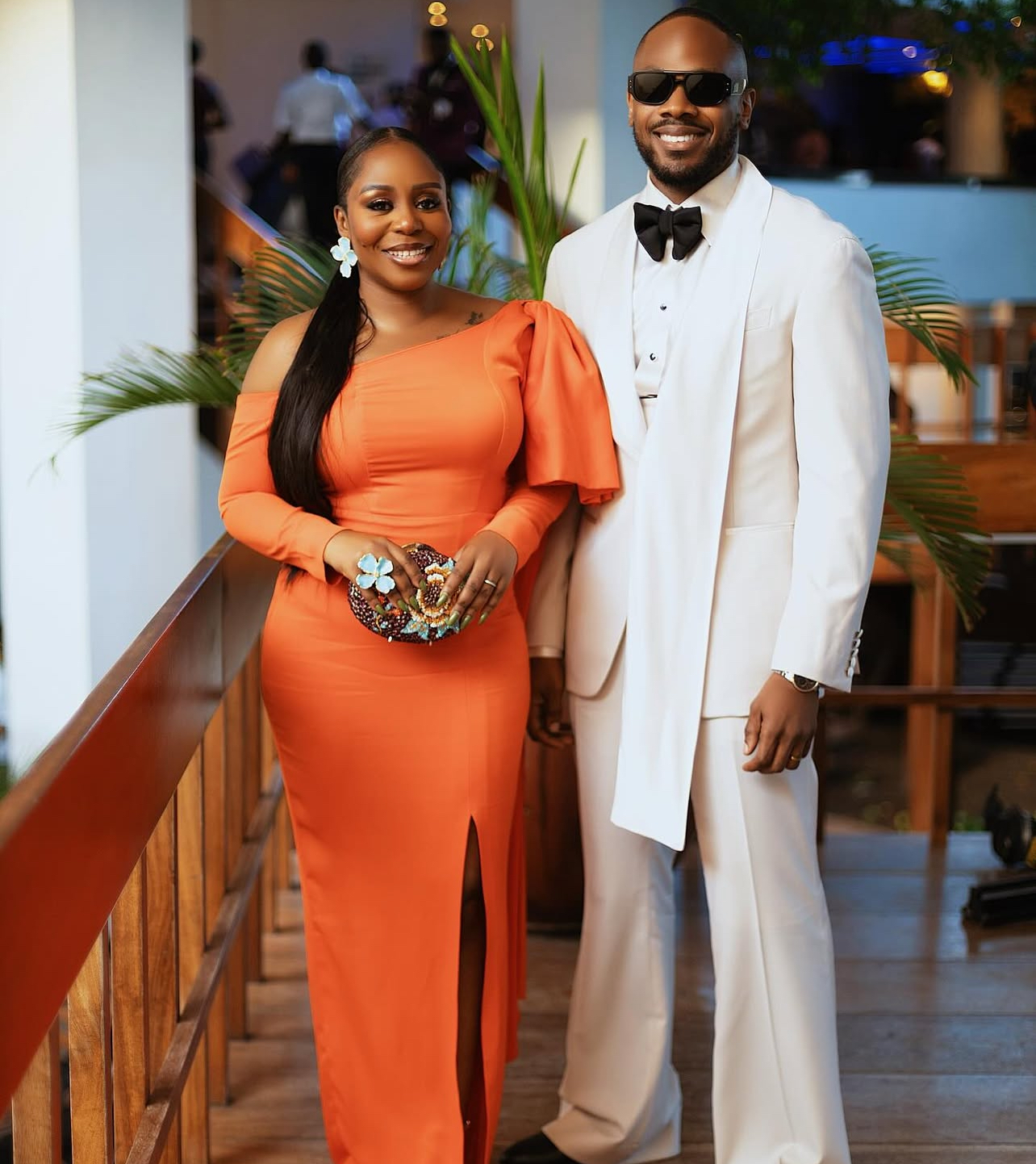
Couples have also joined this performance of wisdom. Actor Daniel Etim Effiong and his author wife Toyosi co-host Transparent Talk Show, where they speak frankly about marriage, communication, and gender roles. Episodes like “Who Should Kneel Down?” or “Signs Someone Might Be the Right One” draw heavily on their own relationship experiences. For fans, the appeal lies in watching a celebrity couple model honesty and vulnerability, offering lessons wrapped in personal stories.
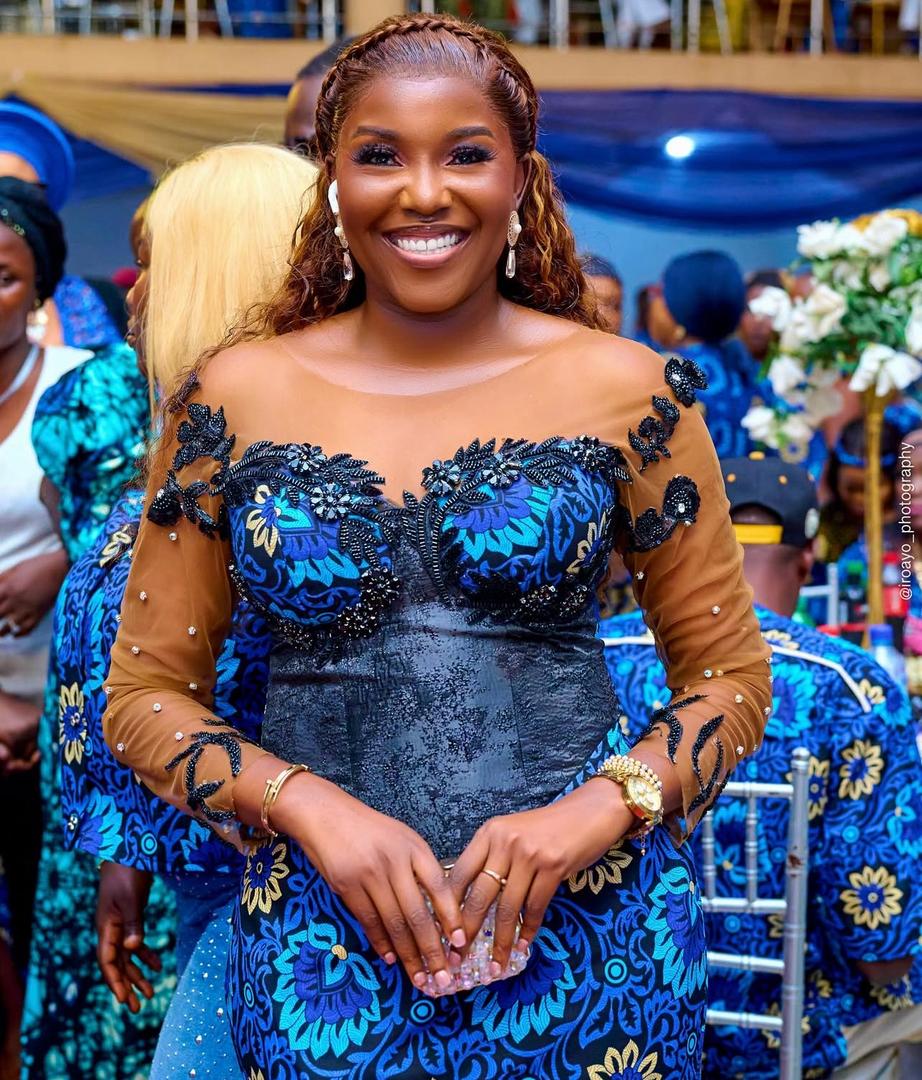
Biola Bayo has taken this a step further. Through her Talk To B podcast, she gives colleagues and ordinary Nigerians space to share painful stories. From miscarriages, failed marriages, health struggles and much more, she leverages her platform to rally support. When actress Dupe Jayesimi opened up about her struggles on the show, Biola mobilised her audience to provide emotional and financial help. In another case, the show facilitated the raising of ₦15 million for surrogacy treatments. Here, the performance of wisdom isn’t just talk, it’s actionable, community-driven empathy.
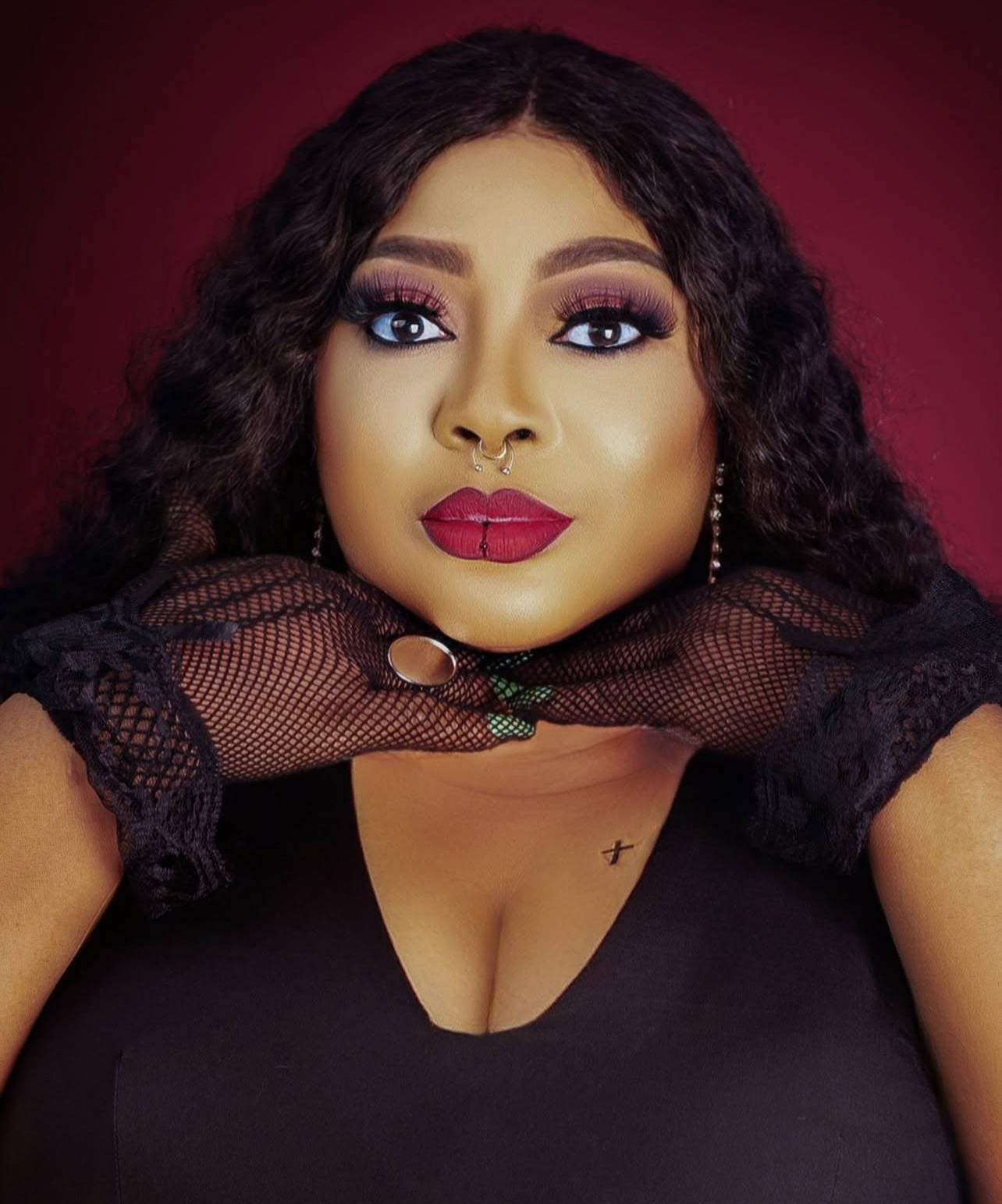
Even Ayo Adesanya, through her young podcast Real Life With Aunty Ayo, has positioned herself as a confidante for peers. In conversations with Bimbo Akintola and Femi Branch, she encourages guests to share personal truths rarely discussed publicly. The show may be new, but Adesanya, like her colleagues, is moving from actress to conversational sage.
The Business Angle
Beyond relevance and reinvention, the talk economy is increasingly about money. Nigeria’s podcast industry, though still developing, is on a fast growth trajectory. Platforms like YouTube, Spotify, and Audiomack have made it easier to monetise through ads, sponsorships, and premium content.
Biola Bayo’s Talk To B has over 100,000 YouTube subscribers, with episodes regularly pulling tens of thousands of views in days. For a Nollywood actress, this is a new kind of stardom that translates directly to ad revenue, sponsorships, and brand partnerships. Her show’s reputation for sparking viral conversations also makes it an attractive platform for corporate sponsors looking to reach engaged audiences.
ISWIS has proven that talk can go beyond digital streams. The podcast has staged successful international tours, selling tickets to live recordings in cities like London and Toronto. This model transforms banter into ticket sales, creating a new kind of performance economy.
Chude Jideonwo’s #WithChude has grown into a content hub distributed across Apple, Spotify, Acast, and YouTube, with sponsorships and syndication deals. His brand extends into panels, conferences, and consulting. This is proof that one show can blossom into an ecosystem.
Toke Moments thrives on YouTube monetisation and brand tie-ins. Toke Makinwa, long known as a brand influencer, now uses her podcast as a steady funnel for sponsorship, guest appearances, and cross-promotion of her other ventures.
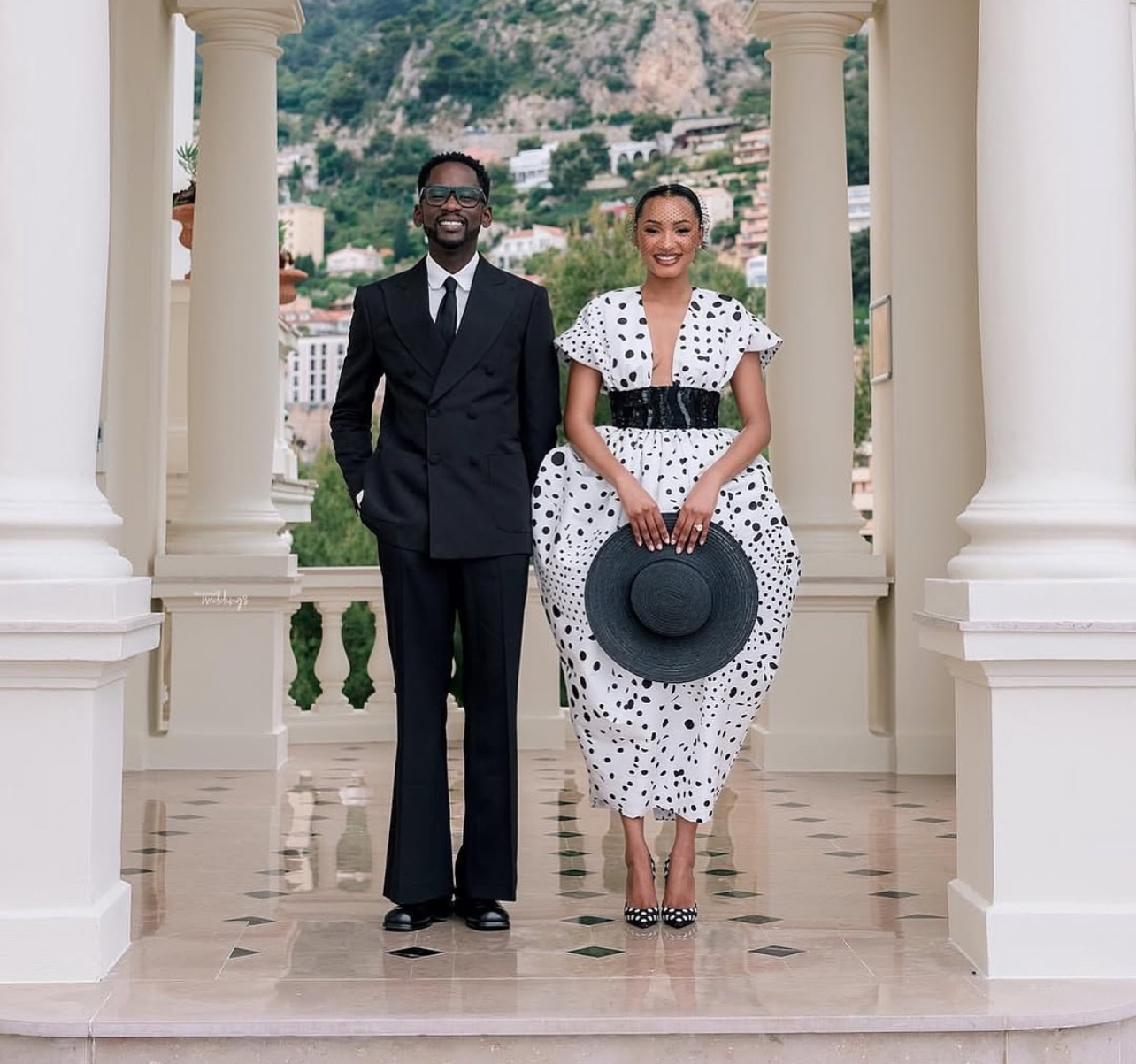
Even musicians have joined in. Singer Mr Eazi and actress wife, Temi Otedola’s How Far? podcast taps into their celebrity status as a couple, offering relationship insights with humour. Beyond connecting with fans, the podcast functions as a branding tool, keeping their names in circulation between music releases or film roles.
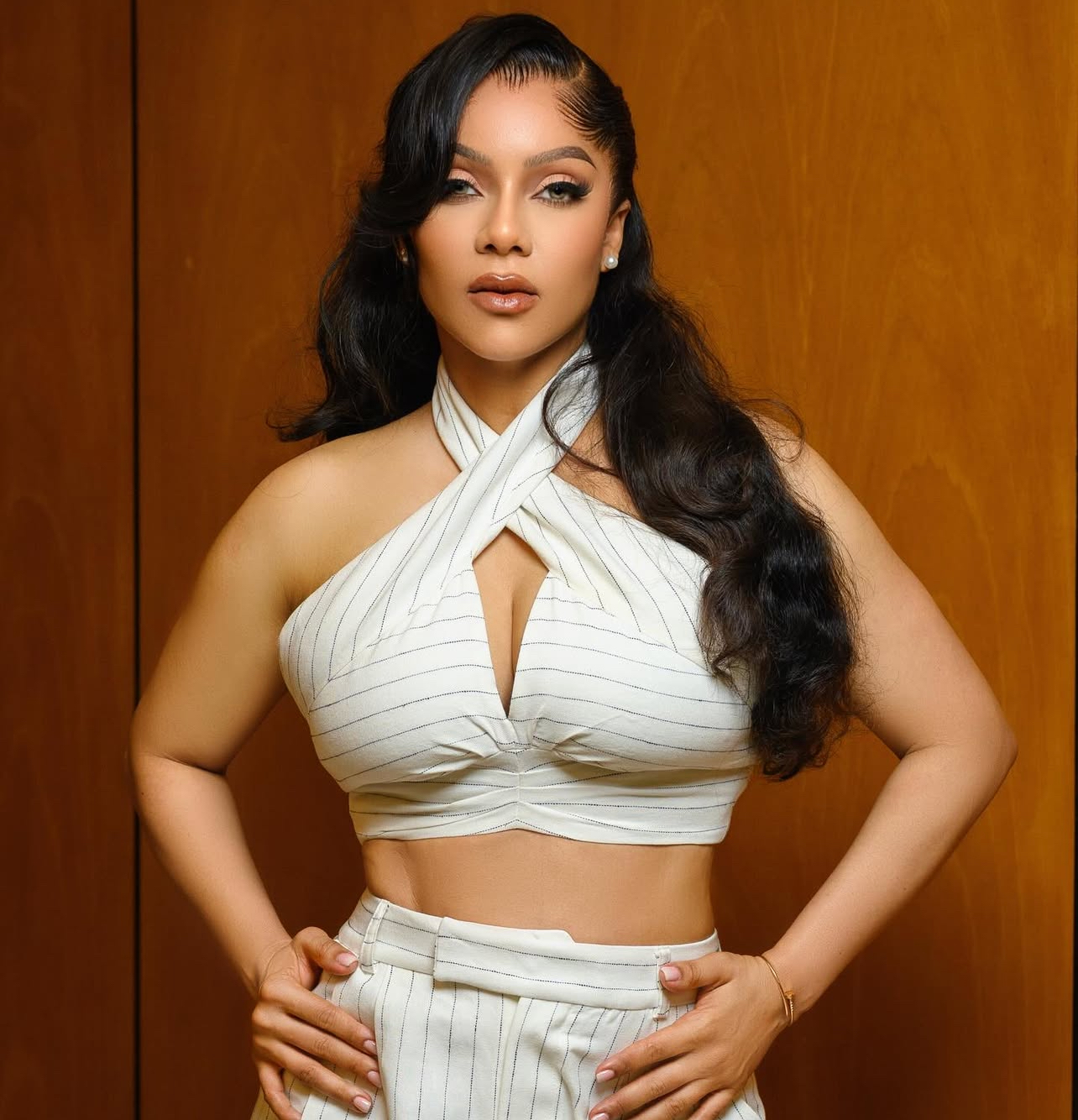
Reality star Maria Chike Benjamin also joined the wave when she launched Healing With Maria in 2023, a talk show produced by her company MCB Entertainment and aired on Africa Magic channels. The series featured survivors of gender-based violence, child abuse and addiction sharing their journeys toward recovery. She followed it up with Mums Next Door in 2024, where she sat with celebrity mothers like Bisola Aiyeola to discuss parenting and postpartum struggles. Although the shows haven’t maintained regular episodes this year, they highlight how even reality TV stars are drawn to the power of conversations, using personal stories and talk formats to reposition themselves and connect with audiences on a deeper level.
Fans’ Reception
Audiences have met this turn to talk with mixed feelings. On one hand, fans appreciate the intimacy and honesty podcasts provide. Shows like Talk To B or #WithChude often trend because they offer raw, unfiltered glimpses into lives that films or music rarely reveal. Packed comment sections prove that many people value conversation as much as art.
On the other hand, there is skepticism. Some fans feel celebrities are turning to podcasts because they no longer command the same energy in their core craft. The criticism is that when a star hasn’t released music in years but suddenly appears everywhere “dropping hot takes,” it can feel like desperation rather than reinvention. There’s also fatigue: with so many celebrities launching shows, not every one is fresh, and audiences can quickly tire of repetitive, surface-level banter.
Nevertheless, the market speaks louder than the criticism. From ISWIS’s sold-out tours to Biola Bayo’s viral interviews to Taymesan’s loyal listenership, the demand is real. For every skeptical tweet, there are thousands of views, downloads, and live audience members paying for tickets.
Conclusion
The surge of celebrity podcasts and talk shows suggests a structural shift in Nigerian celebrity culture. In an environment where music and film are expensive to produce and highly competitive, conversation has emerged as a lower-risk, higher-return strategy. It offers continuous relevance, direct audience connection, and multiple revenue streams.
What remains to be seen is whether this will be a temporary fad or a lasting fixture. If audience appetite for authenticity continues, and if sponsors keep investing, then conversation may remain the most reliable form of celebrity currency. But there are risks of oversaturation and content fatigue. At some point, not every new celebrity podcast will break through.
Still, for now, the evidence is overwhelming. In Nigeria today, it pays more to be heard talking than to be seen acting or singing. The microphone has become as powerful as the camera. Conversation, not performance, is what buys relevance.

